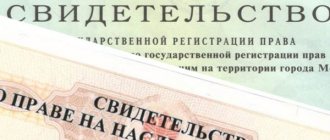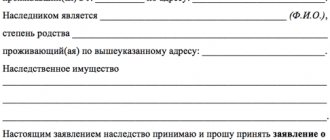Notarial actions
Notaries perform the following legally significant actions:
- Certification of transactions.
- Issuance of certificates and their duplicates.
- Imposition/removal of bans on the alienation of property.
- Certification of citizens' signatures.
- Acceptance of shares or cash on deposit.
- Making a writ of execution.
- Carrying out maritime protests.
- Acceptance of documents for storage.
- Submission of documents on registration of property rights.
- Taking measures to protect the inheritance.
- Confirmation of the fact that an individual is alive.
- Certification of the time of acceptance of documents.
- Presentation of checks for payment.
The presented list of notarial actions is far from complete. In their activities, notaries are guided by Art. 35 of the Law on Notaries.
Regardless of the type of notarial act, the applicant is obliged to present the original documents to the notary. A notary has no right to rely in his activities on copies of documentation.
Actions of the heirs if the notary performs his duties in bad faith
It doesn’t matter whether the mistake is due to incompetence or the purposeful opposition to justice, rights must be defended in any case. There is a judicial procedure for this. When a notary refuses to collect or issue the required documents, file a statement of claim with the court. Describe the facts, provide evidence and arguments supported by articles of law. On the appointed day, appear in court, take part in the debate, and receive a court order.
Registration of inheritance
One of the notarial actions is the registration of inheritance. A legally significant action is usually performed within six months from the date of death of the property owner.
List of information when contacting a notary to register an inheritance
| No. | Title of the document | A comment |
| 1 | Application for acceptance of inheritance | The document is written in simple written form. Every notary has a template. |
| 2 | Death certificate of the testator | It is issued by the registration authority at the place of registration of the deceased subject. The basis for issuing a certificate is a certificate from the morgue or a court order. |
| 3 | Identity card of the legal successor | Usually a passport of a citizen of the Russian Federation or another country is used. |
| 4 | Confirmation of relationship with the deceased subject | • marriage registration certificate; • if the legal successor is a child, then a birth certificate must be prepared. |
| 5 | Will | If the testator left behind an order, it must be attached to the application. The document gives the applicant an obvious advantage when registering an inheritance. |
| 6 | Title and technical papers for movable/immovable property | The heir must confirm that the testator has the property for which he is claiming (house, apartment, car, deposit) |
| 7 | Certificate from the last place of residence of the deceased citizen | The document is required to determine territorial affiliation. Because the heirs cannot turn to every notary. If such a document is missing, then an extract from the Unified State Register will be required. It will help determine the location of real estate that belongs to the testator. If there is an apartment or house, the inheritance case is opened at its location. |
| 8 | Property Value Report | Based on it, a calculation is made of the amount of state duty that is withheld from the heirs when issuing a certificate |
| 9 | Papers confirming the right to tax benefits | Disabled person's certificate, birth certificate |
| 10 | Confirmation of payment of state duty | Without a bank receipt, the notary will not issue an inheritance certificate |
Expert opinion
Stanislav Evseev
Lawyer. Experience 12 years. Specialization: civil, family, inheritance law.
The package of documents is far from complete. When registering an inheritance, there are many non-standard situations that can significantly expand the list of papers.
One of them is the actual acceptance of the inheritance. The successor will have to confirm the commission of legally significant actions within 6 months after the death of the testator and provide written evidence of this fact. The list of documents depends on what specific actions the heir performed.
If during the preparation of documents one of the heirs dies, then the right of inheritance passes to his relatives. The legal successor of the deceased citizen will need to confirm his relationship with him. For example, submit a birth or marriage certificate.
a dependent of the testator acts as an heir , then he needs to confirm the following facts:
- Status of a disabled person. Loss of ability to work occurs as a result of retirement or assignment of disability.
- Being in the custody of a deceased subject. Typically, payment documents confirming the transfer of funds or witness statements are used.
- Cohabitation with the testator until his death. An extract from the house register will serve as evidence.
Why do you need to look for heirs?
Initially, it may seem that if there is one legal heir, there is no point in looking for others. In fact, this is not true. People entering into inheritance rights are interested in finding other applicants. This is due to the fact that it is much easier to immediately divide the inheritance between the claimants than to later give his share to the heir who appears.
If the heir, who has learned about his right and has the appropriate evidence, goes to court, most likely, the law will be on his side, and the heirs who have already entered into inheritance rights will have to share. In fact, the inheritance mass will be redistributed.
If by the time another applicant appears, any actions have been taken with the property (exchange, sale), then the remaining heirs will have to pay financial compensation. Of course, few people are happy with such a prospect, so experts strongly recommend looking for heirs in advance and not relying entirely on the work of a notary.
What documents does the notary seize?
When contacting a notary, the heirs must prepare a package of documents. Some papers are subject to confiscation, while others are copied.
The notary has the right to withdraw:
- Application for acceptance/refusal of inheritance.
- Title documents in the name of the testator. Provided that they do not affect the rights of other citizens. Instead, the successor is issued a certificate of inheritance.
- Certificate from the last place of registration of the testator.
- Receipt for payment of state duty.
The notary also confiscates the inheritance certificate if it is cancelled. For example, if the heirs agreed among themselves to include a new participant in their composition or there is a court decision recognizing the right of ownership of the property (Article 1155 of the Civil Code of the Russian Federation).
Example. The testator died at the age of 65. The only heir was his daughter. After her father's death, she was left with a 2-room apartment. When registering the inheritance, the notary demanded the original purchase and sale agreement for the apartment. The document was filed in the case file. It was explained to the heiress that she would not need a purchase and sale agreement when applying to Rosreestr. The fundamental document will be the inheritance certificate.
Original documents are accepted by the notary against signature:
- 1 copy of the receipt is issued to the applicant,
- 2 – kept by a notary. The received documents are filed in the materials of the inheritance case (clause 15 of the Methodological Recommendations).
Some documents are subject to registration. They are necessarily displayed in the log of incoming correspondence (clause 23 of Order of the Ministry of Justice dated April 16, 2014 No. 78). An exception is papers confirming a certain legal fact. For example, a death/birth certificate.
If any document is needed by the heir, the notary makes a copy of it, and the original returns it to the owner. When returning documents, a receipt is issued again. This is usually expressed as a notation on a copy of the returned document.
When returning the original title documents, the notary makes an appropriate mark on them. It includes the date of the notarial act, registration number, information about the notary, his signature and seal.
What is the scope of a notary's activities?
We have to pick up those papers that should go to the archives. But these are not always originals. The main task of a notary is to verify identity and certify that the documentation provided reflects the essence and is valid. The responsibilities of a notary office employee are as follows:
- Make sure that the person indicated in the documents being processed is in front of him.
- Confirm that signatures are affixed of one’s own free will, without coercion, pressure, or threats.
- Check and make sure that the applicant is legally competent, an adult, and of sound mind and memory.
- Conduct a legal analysis of the documents being drawn up, as well as information on paper that needs to be collected.
Further actions of the notary vary depending on the essence of the problem being solved. If we are talking about a hereditary matter, then the specialist:
- Certifies and stores the original will.
- Accepts applications from applicants for inheritance.
- Determines the circle of applicants for rights.
- Summons obligatory heirs.
- Forms hereditary volume.
- Distributes shares of the hereditary mass.
- Issues a certificate of inheritance.
When opening inheritance cases, notaries do not take away the will. It may be necessary to make a copy and check the authenticity of the signatures. The original is kept in the archives of the notary office. When accepting papers from the applicant, the notary is obliged to issue a receipt if he has to take away the originals attached to the inheritance file. This requirement also applies to copies. But there is a list that is provided in the form of photocopies, and there is no need to pick up the original papers. These include:
- Acts on social status - certificate of birth, marriage, dissolution of marriage, change of surname or death.
- Documents confirming the existence of property rights - if they relate to the ownership of a share, for example, an apartment owned by both spouses.
- A power of attorney, which involves the transfer of powers other than applying to a notary. Example - it is indicated that the authorized person is responsible for re-registration in Rosreestr.
In the above cases, copies are sufficient for the notary if you bring them along with the original. He will verify the information, make sure it is accurate and issue a receipt of acceptance.
What legal acts regulate the work?
Every action of a specialist complies with legal requirements. In his work, a notary is guided by legal norms of various categories. Decisions are made based on the provisions of the Civil, Family, Housing Codes, as well as federal laws, orders, etc. But the fact that a notary has the right to take away documentation is stated in the following articles:
- Rules of notarial office work. Point 21.
- Methodological recommendations for registration of inheritance law. Points 14 and 16.
It also says that taking away is a right, but issuing a receipt of acceptance is an obligation. Therefore, request an official register of transferred papers signed by the person receiving the documents and stamped by the notary office. The list will be needed when the time comes to pick up the originals after the end of the inheritance case.
What documents are not subject to seizure
When performing legally significant actions, the notary is obliged to adhere to the requirements of the law and other regulations. One of them is the order of the Ministry of Justice dated March 15, 2000 No. 91.
According to it, the notary has no right to seize:
- Citizen's identity card.
- Constituent documents of the enterprise.
- Death certificate of a citizen.
- Child's birth/adoption certificate.
- Marriage registration certificate.
- Power of attorney addressed to the representative. Exception - the document was issued for the conclusion of a specific agreement.
- Title papers that are required for state registration of property rights. In particular, if the inherited property is owned by several persons.
- Passport for the vehicle.
- Papers confirming the registration of property rights.
Example. After the death of the testator, the inheritance opened. The applicants include a wife and two children. The object of inheritance was the apartment in which the family lived. However, the housing was jointly owned by 3 people. The husband, wife and eldest son took part in the privatization of the apartment. There was no younger child then. Only part of the head of the family was subject to inheritance. When preparing the documents, the notary returned the title papers for the property to the co-owners. Copies of them were attached to the materials of the inheritance case.
Where to go, where you can register an inheritance
The person authorized to register an inheritance is a notary. However, the heirs are not given the right to independently choose a notary office. Recipients must contact the place where the inheritance was opened.
Options for opening the inheritance:
- At the place of permanent registration of the deceased (Article 1115 of the Civil Code of the Russian Federation).
- According to the location of the inherited property.
- If there are several property objects, then according to the location of the most expensive object.
- If there are real estate objects in the inheritance mass, then at its location.
- If the location of the inheritance is unknown, then in accordance with the court decision to establish the place of opening of the inheritance.
Practical examples
- Example. Citizen S. inherited her father's house. The notary demanded to bring a title document - a purchase and sale agreement, after which she did not return the original. Having contacted a lawyer, S. found out that the actions of the authorized person were lawful. The document required to register ownership will be a certificate of inheritance. The original contract remains if the apartment had several owners.
- Example. Citizen A. inherited the house. The notary retained the original certificate of ownership in the name of A.’s mother, and the privatization agreement. After the 6-month period, the ex-husband of the owner of the house decided to claim the house. For the trial, evidence was needed that the husband officially refused privatization. The privatization agreement was demanded from the notary by the court. If necessary, citizen S. could contact a notary himself and receive a copy of the contract certified by him.
Collecting the necessary information to acquire the right to inheritance requires a lot of effort. Forgetting to check the validity period of the certificates, you have to order new ones, and the requirement to irrevocably provide the originals is confusing. Before submitting documents for inheritance to a notary, it is recommended to make copies, notarize them and store them. It is not uncommon for relatives to appear demanding a share of the inheritance. Such issues are resolved through the court, and documents on the property rights of the testator are additional confirmation of their rights. Certificates with a limited validity period are provided in the original. For example, a certificate of residence is valid for an indefinite period when applying regarding inheritance issues, and for making payments on utility bills, it is valid for 10 days, so there is no point in storing such documents. All issues can be easily resolved if they are dealt with by the lawyers of the ros-nasledstvo.ru portal. You don’t need to understand the laws and regulations about notaries, just contact and get a professional answer.
Legal order of inheritance
If the deceased has not confirmed his last will with a will, the assets remaining after death are distributed among his closest relatives. The order is determined by Art. 1142 – 1148 Civil Code of the Russian Federation.
| Relationship level | Heirs |
| 1 | Spouse, natural and adopted children, parents, adoptive parents |
| 2 | Sisters, brothers, grandparents |
| 3 | Uncles and aunts |
| 4 | Great-grandparents |
| 5 | Cousins, grandsons, grandmothers, grandfathers |
| 6 | Great-great-grandchildren, great-great-grandchildren, nephews, nieces, aunts, uncles |
| 7 | Stepsons, stepdaughters, stepfathers and stepmothers |
The system is supplemented with specific mechanisms. Art. 1146 of the Civil Code of the Russian Federation gives the right to represent the descendants of the deceased heir. The children of this participant are called to the same procedure as the current queue.
Example: After the death of a citizen, an apartment in Moscow remains, which is claimed by his wife and daughter. The owner's son died in a car accident, leaving behind two minor children. The notary will divide the father's property into three shares. The spouse and daughter will receive one part each, and the third will be equally inherited by the grandchildren by right of representation.
Another specific mechanism is the transmission (Article 1156 of the Civil Code of the Russian Federation). If a participant called by a notary dies, the rights pass to his heirs. The norm does not apply in the event of the death of a citizen before the opening of an inheritance case.
The rules are also supplemented by a condition on the mandatory participation of dependents. If there is a blood relationship, such persons are called upon to distribute assets equally with the current queue. If there is no direct connection, the condition for receiving a share is cohabitation with the deceased for a year before death (Article 114 of the Civil Code of the Russian Federation).
Deadlines for contacting a natary
There is a clear deadline for filing applications - no later than six months from the day the testator died. But when you submit an application, everything is just beginning - an inheritance case will be opened, which will be assigned a unique number. Only upon presentation of certain papers will the procedure for registering the inheritance itself be carried out in the name of the heir.
If the first-priority heirs decide not to accept the inheritance, then the heirs of all other orders have every right to write an application for their acceptance of the inheritance. The state allocates them three months for this from the expiration of the period during which the original heir was able to accept the inheritance.
What to do after the certificate is issued
The official entry into rights ends with the receipt of documents from a notary. The exception is specific assets:
1. Transport. It will need to be registered with the traffic police. The procedure is regulated by government decree No. 1764 of December 21, 2019.
2. Real estate. Information about the transfer of rights to objects is transferred to Rosreestr by a notary. Documents are sent via electronic channels, and a state fee is withheld from the new owners.
3. Bank deposits and account balances. You will have to contact a financial institution with a certificate of inheritance. The procedure for receiving unpaid earnings, investments, securities, and funded pensions will be similar. Only the addressees of the applications will change.
4. Intellectual property. After registering the inheritance with a notary, you need to contact Rospatent. The department will register the assets in the name of the new owner (Article 1232 of the Civil Code of the Russian Federation). Making changes to registers is subject to a fee.
If, as a result of the division of inheritance, shared ownership has arisen, the owners will need to agree on the procedure for its use. When minors participate in the procedure, notification of guardianship authorities may be required.
Brief conclusions and tips
- If you have been declared an heir to any property , you need to be prepared in advance to do a lot of work. If you cannot be present in person, you can write and certify a power of attorney and give it to a person to whom you can entrust all matters regarding your inheritance. This person will collect documents so that you can receive a Certificate of Succession.
- During the six-month period before receiving the Certificate of Inheritance, you need to collect all documents in advance, including everything that is being inherited. They may be required for certification. In this case, you must also go through all the authorities.
- All documentation that is in unsatisfactory condition, has serious abrasions, tears, or blurry text must be redone. Any documents are requested upon application to the authority that issued them. This can be done by the requester himself or his authorized representative (if he has a power of attorney).
- If there are benefits, you need to present them. The state duty is noticeably reduced; in the case of a large inheritance, this will help to save significantly.
- If any problems arise regarding the preparation of the Certificate, the right decision would be to contact a lawyer for advice and assistance.
Sources
- https://shablondok.ru/spory-mezhdu-naslednikami/kakie-dokumenty-ostajutsja-u-notariusa-pri.html
- https://allo-urist.com/imeet-li-pravo-notarius-zabirat-originaly-dokumentov/
- https://NasledoVed.ru/imeet-li-pravo-notarius-zabirat-originaly-dokumentov/
- https://homeurist.com/nasledstvo/oformlenie/u-notariusa-posle-smerti.html
- https://ros-nasledstvo.ru/imeet-li-pravo-notarius-zabirat-originaly-dokumentov/
[collapse]
The notary refuses to issue a receipt
Not all notary representatives conscientiously perform their duties. Sometimes notaries refuse to comply with the direct requirements of the law. For example, they do not issue a receipt when original documents are confiscated or they file originals instead of copies in the case materials.
The heir may insist on providing the necessary document or refuse to perform the notarial act. If the notary refuses to issue a document, it is necessary to request written confirmation of such a decision.
Subsequently, it will be possible to appeal the unlawful actions of the notary in court. However, the trial will take at least 2 months .










